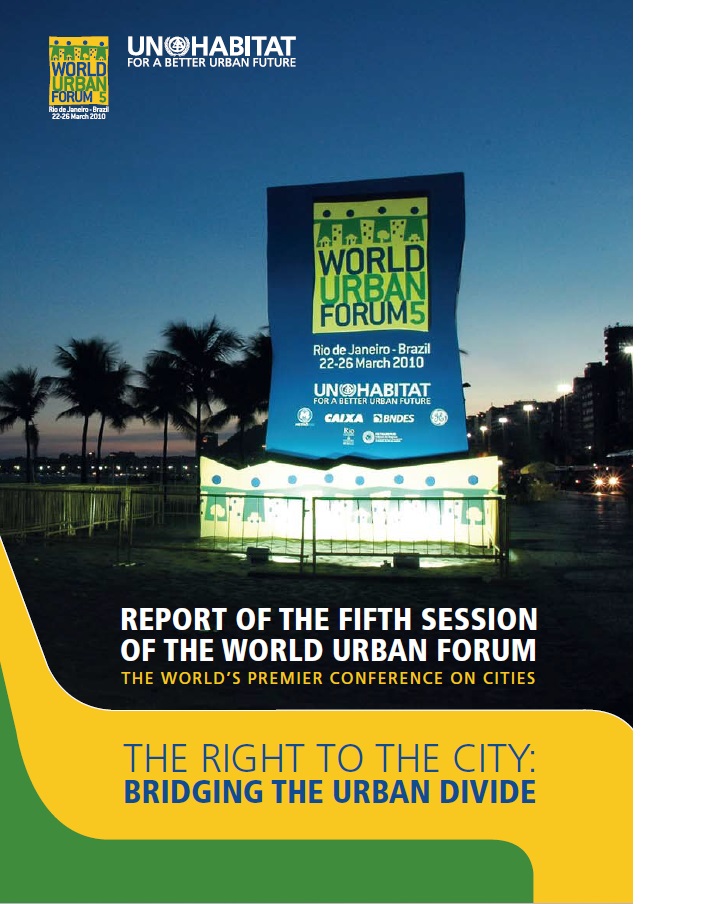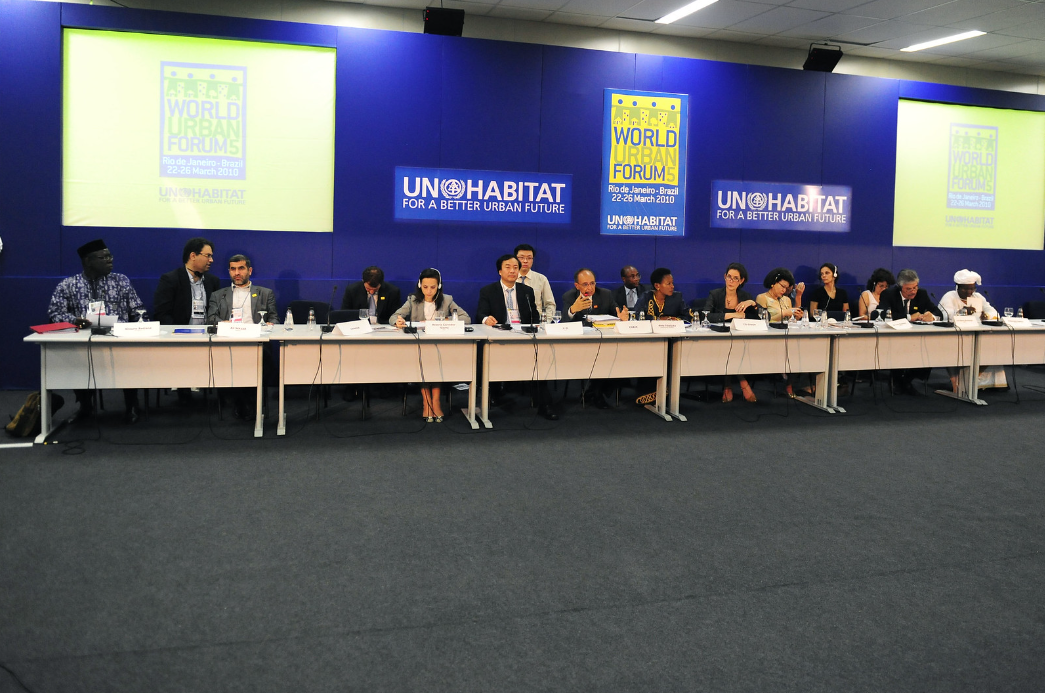Calling for policy shift in South-South cooperation to meet rural-urban migration challenges
RIO DE JANEIRO - South-South cooperation remains essential in facilitating the bridging of the growing urban-rural divide and migration, whose dimensions now overlap across economic, social, political and cultural spheres, as well as across national and international boundaries, according to Amb. Ali Mchumo, in a keynote address at UNHABITAT's World Urban Forum-5 special session on South-South Cooperation held recently in Rio de Janeiro, Brazil.
In developing countries, where the greatest development deficit and therefore with the greatest number of cities with the greatest depravity - South-South co-operation is of paramount importance, due to the growing need for resources, technology and applied knowledge.
The Managing Director recalled that the Buenos Aires Plan of Action on Technical Co-operation among Developing Countries, adopted more than 30 years ago, had provided a blueprint for partners in the South to promote solidarity, to exchange experiences and also established the foundation for greater trade and investment among developing countries, with the ultimate objective of achieving socio-economic development and complementing North-South co-operation.
He noted that since Buenos Aires in 1978, South-South co-operation had expanded enormously and it continues to play a key role in efforts by developing countries to meet their development goals. "It is expected South-South co-operation will become a key component in the upcoming review of the Millennium Development Goals (MDGs) in September 2010, especially in regard to how greater co-operation could be forged to tackle the current economic and financial crisis and to avoid reversing hard-won development gains attained so far," he said.
Amb. Mchumo mentioned that South-South strategies and co-operation could become major policy tools because solutions for urbanization-related problems lie in the South. "An entire socio-economic system will need to be established around urban nodes, so that city dwellers could have decent living standards and meet the urban population's increasing needs and requirements in a number of areas including health, sanitation, education, water, housing and transportation; as well as food supply," he said.
Already, the Common Fund is operating within the framework of South-South co-operation, by financing commodity projects, which bring together developing countries that share similar commodity problems, through its "multi-country approach" to development.
Amb. Mchumo said in this context, the Fund has financed a project on cashew-nut development linking ten Eastern and Southern African countries including Mozambique, Uganda, Kenya and Madagascar. "We even have projects, which cut across all regions, such as the project on coconut germplasm, which involved over 15 countries in Africa, the Caribbean and Asia,"
The Fund also promotes trilateral co-operation and has financed a project through a partnership with UNHABITAT to assist coffee farmers in the Lake Victoria region in East Africa, to diversify into banana processing in order to achieve more sustainable livelihood in commodity production. Two other projects, on tuber crops and vegetables production in the Caribbean, for which the European Union (EU) has provided substantial co-financing demonstrates the Fund's capacity and resource mobilization to soften the impact of urbanization by stabilizing rural areas and thereby reducing the inflow of migrants from rural areas to urban centres.
 "For this to happen, we need a policy shift to put our citizens at the centre of the municipal, regional and international endeavours," Amb. Mchumo said. "It is only that commitment to serve man - meaning all people equally - that will ensure that schools, health care, housing, transportation, are accessible to all and people who live cities and in rural areas are able to participate democratically in the decision making process affecting their lives."
"For this to happen, we need a policy shift to put our citizens at the centre of the municipal, regional and international endeavours," Amb. Mchumo said. "It is only that commitment to serve man - meaning all people equally - that will ensure that schools, health care, housing, transportation, are accessible to all and people who live cities and in rural areas are able to participate democratically in the decision making process affecting their lives."

